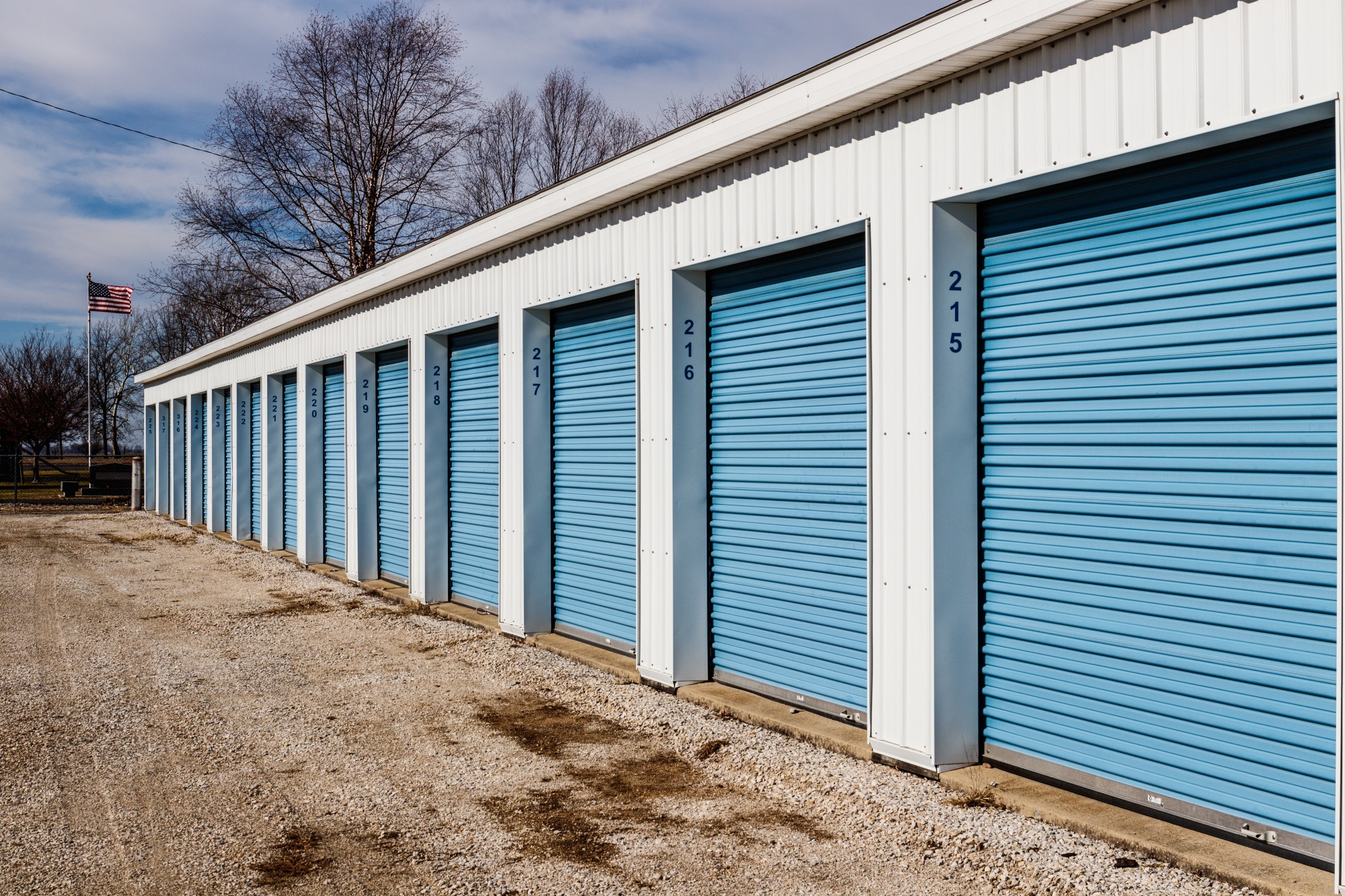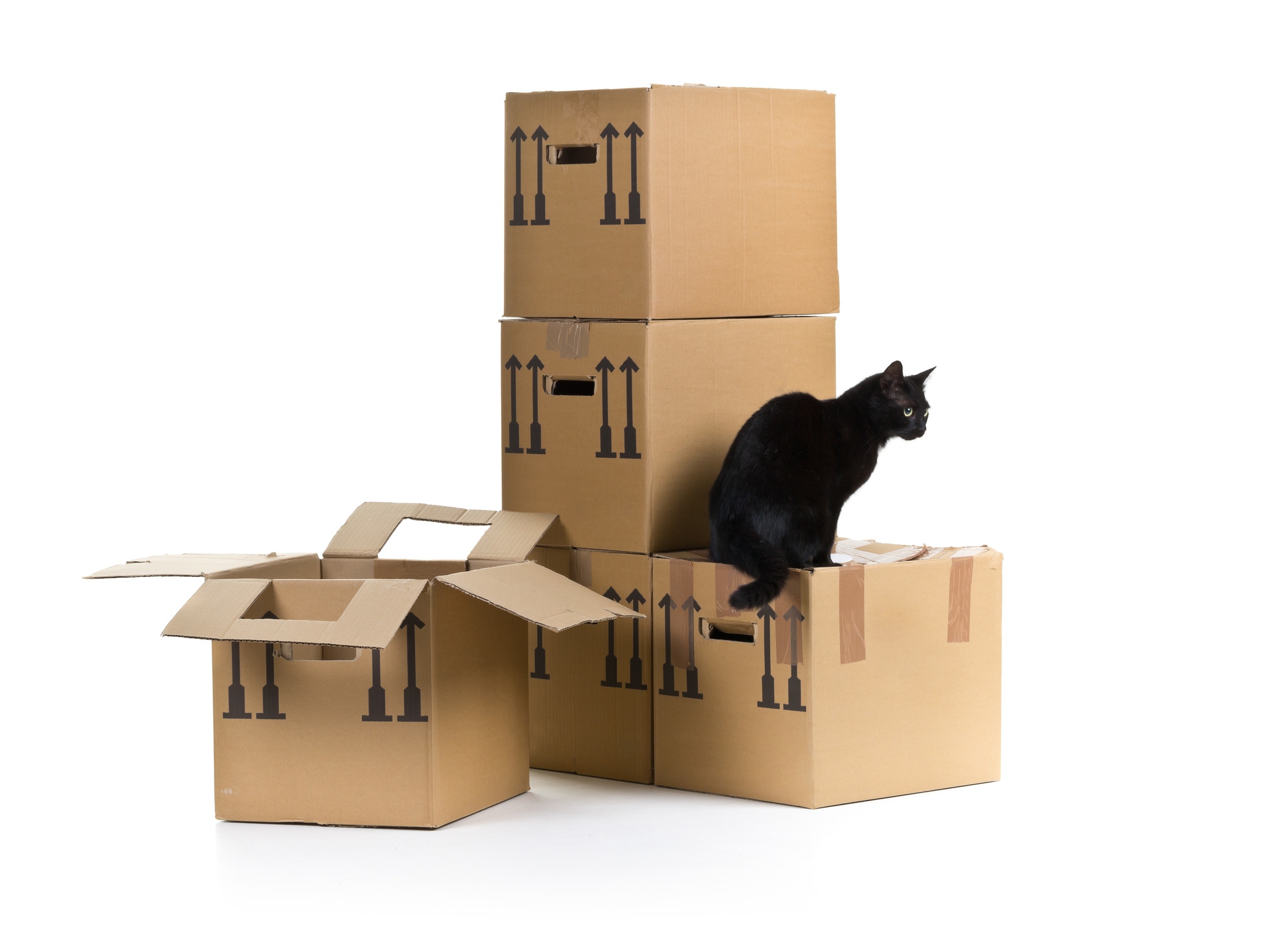Moving anywhere is an investment of time and money, but moving to a different state adds another layer of complexity. While a move 15 or 20 miles away can take a few days, a long-distance move may take months of preparation and work leading up to moving day.
Need help relocating to another state? Here’s everything you need to know for how to move from state to state, from working out a budget to scheduling everything in advance.
Make a Moving Budget
Moving out of state costs some money. You need a budget to keep track of expenses, prioritize your spending, and find ways to save.
How much should you budget to move to another state? It depends on how far you’re moving, the size of your household, how you’re getting to your new home, and more. Start with a checklist for everything you’ll need, including packing supplies, professional movers, car shipping, and travel costs with rough estimates.
We created a comprehensive checklist for moving across the country, which you can customize for your move.
From there, you can determine a range you’re comfortable spending. Then, you can list your necessary moving expenses (round-up for some financial cushion) and the “nice-to-have” expenses to prioritize.
For example, professional moving companies are more expensive than a DIY move, but it pays off in a less stressful experience and safe handling of your property.
If you still want to DIY, keep in mind that you will need to budget for packing materials and equipment, such as appliance dollies. You will also need to estimate the size you need for a truck rental and budget for gas.
Many people forget hidden moving expenses, such as servicing your vehicle for a long-distance drive, airfare, accommodation, babysitting or pet boarding during the move, and road tolls.
If you need specialty services to ship or move plants, pets, antiques, or other unusual items, look into your options early.
Research Professional Movers
Hiring professional movers is the best way to move to a new state. Start researching professional interstate movers and their services to see what works best for you. From there, you can begin getting moving quotes and comparing rates, services, and reviews.
Moving scams and shoddy practices do happen. Make sure any moving company you hire is legitimate and properly licensed. The Federal Motor Carrier Safety Administration (FMCSA) maintains a database of registered moving brokers and carriers, as well as resources to help you understand your rights, avoid scam moving companies, and prepare for your move.
Under federal law, interstate movers must have full-value content protection in their initial estimates by default. You can save by choosing complimentary released-value protection, but note this only covers up to $0.60 per pound per item. If you want additional coverage, you can purchase moving insurance.
Make Travel Plans
Depending on how far you’re moving, you may need to fly or drive over several days to get to your destination. The earlier you can plan, the easier and cheaper it will be to get the dates you want.
Plan how you want to travel. If you want to drive, get your car serviced and book accommodation at checkpoints on the route for overnight stays. If your home won’t be ready to move in when you arrive, book a short-term home rental in advance to avoid last-minute price surges.
If you’re going to fly to your new home, book plane tickets for yourself and your family as far out as possible to save money. Professional car shipping can get your car to your new home safely and efficiently, all without wear and tear from the drive, but you will need to book that early to align with your move-in date.
Plan for Pets
If you’re traveling with dogs, cats, small animals, or exotic pets, they need to be considered in your planning.
Consider how you’ll transport your pets to your new home. There are many restrictions on flying with cats and dogs, so you may need to drive them or hire a moving company that offers pet relocation services. Some small pets and exotic animals can be shipped overnight to your destination with specialty pet shipping providers.
However you plan to get your pets there, you will need up-to-date vaccinations and paperwork for most services and to cross some state lines. If you expect the move to be stressful for your pet, talk to your vet about calming medications to help. You should also refill any medications your pet needs before the move.
Finally, prepare for emergencies by locating vets in your new area and along your travel route. If you have a time-sensitive medical situation, you will know exactly where to go.
Declutter Your Home
Some of your moving costs are based on how much stuff you have, so it’s best to declutter before taking inventory and getting a quote.
Decluttering can be overwhelming. Start small with one desk or cabinet at a time and categorize everything into keep, sell, donate, or toss boxes. Finish one area and move on to the next, adding to the boxes as you go.
Once you have everything categorized, take your donations to the local Goodwill or Salvation Army. If you don’t want the hassle of selling on your own, you can take your items to a consignment shop. For high-value sell items, look for local antique marketplaces or luxury consignment shops online.
Many areas have limitations on how much trash you can put out each week. Depending on how much you have to throw out, consider getting bulk stickers or renting a dumpster.
Keep in mind that some items are not permitted in normal trash and recycling, such as electronics (e-waste) and large appliances. Some stores offer e-waste recycling, such as Best Buy and Staples.
Gather Packing Materials
If you’re packing yourself instead of hiring a professional moving and packing service, you will need a lot of moving supplies to start. Gather up boxes of varying sizes and packing materials like foam peanuts, bubble wrap, newspapers, packing paper, box tape, and a permanent marker. You will also need equipment like a handcart or an appliance dolly, hand tools to disassemble furniture, and a utility knife.
To get a head start on gathering packing materials, check out our ultimate moving supplies checklist.
Inventory Your Home and Start Packing
Now that you have a much lighter load, start taking an inventory of your home. Organize all your possessions and document them, including taking photos or videos. This is important to prove your items’ condition if they’re damaged during the move. Keep these records in a digital document or spreadsheet for quick reference.
Once everything is inventoried, start packing your nonessential items. Start with items like rarely used kitchen appliances, collectibles, artwork, books, and home décor. Doing a little bit at a time makes the process less tedious and overwhelming.
As you go, label each box. Be specific, since you’ll likely have multiple boxes for each room. For example, write “kitchen: small appliances” on a box, not just “kitchen.”
Start early and pack strategically. You don’t want to rush and leave your possessions vulnerable to damage or disorganized when you arrive.
Pack Your Personal Records
While you can entrust your possessions to a moving company, some things need to travel with you. Gather all your sensitive records, such as medical records, copies of school transcripts, veterinary records, birth certificates, insurance paperwork, tax records, and any other personal documents, and store them in a case or file folder for the move.
Set Up Utilities and Other Services
You will need to set a disconnection date for your current utilities and services and set them up at your new home around your move date. You also need to change your address with the United States Postal Service (USPS) and state DMV.
Some other important documents to update include insurance, car titles, credit cards and billing, and voter registration. You should also notify your doctor, dentist, and other essential providers of the move and start looking for options in your new state to get established.
If you have children, you have to reach out to their current and new schools to notify them of the move. Each school will have a process to transfer records and complete enrollment, so make sure this is all done in advance to ensure they have a seamless transition into their new school.
Don’t forget to cancel gym memberships or social club memberships before your move. You likely won’t have time to keep up with them while you’re planning, so do this as early as possible and get back on track in your new state.
Confirm Details with Your Moving Company
As the move date approaches, check in with your moving company to confirm the timing and details. This is a good time to confirm your other bookings, such as flights, hotels, car rentals, pet boarding, or any other services you need for interstate travel.
With dates finalized, make sure you have everything prepared for the actual moving day. Organize your possessions to make them easier to load onto the truck. This prep will pay off when you’re unloading and unpacking.
Get Ready for Moving Day
If you put time and effort into planning for the day of your move, it will go much smoother.
If you hired professional movers, sign the paperwork and offer a tip to the moving team if it’s accepted by the company. A $40 flat rate is appropriate per mover for the day, but feel free to tip more if you feel your team went above and beyond for you.
If you’re loading up the truck on your own, plan an efficient method to get everything out of your house and keep it organized on the truck. For example, you may want to load the furniture, heavier boxes, and nonessential items first, giving you easy access to your essential items when you arrive.
Once your home is empty, do any last-minute cleaning from the move and take a final walkthrough. Check all the nooks and crannies, cabinets, and closets to ensure you’ve left nothing behind, then close doors and windows and lock up. Give the key to your real estate agent, new homeowners, or landlord, and you’re off!
Plan a Stress-Free Move to a New State
Moving can always be a hassle, but you can make it much easier with planning and strategy. Preparing early, staying organized, and scheduling professional services as needed are the best ways to ensure that you are ready for any bumps in the road.
Everything you can hire out is less work for you. Instead of driving your car to a new state, Nexus Auto Transport can help you ship your vehicle to its destination safely and efficiently. Contact us for your free quote today!
Tips for Moving Out of State: Budget
Develop a realistic budget before you move to a different state. This is one of the most essential tips for moving to a different state.
Your budget should include your moving and living expenses. Differentiate ongoing expenses from one-time ones. Be as detailed as possible to avoid facing unexpected costs during your journey.
Look for areas of your budget where you could save money. Cancel unnecessary recurring expenses (e.g., your Netflix subscription or cable bill) several months before your money. Put the money you save in a moving fund account so you don't spend it on another non-needed expense, like dining out.
To-Do List for Moving Out of State
Create a to-do list for moving out of state. This list should include notifying your creditors of your new address so you can get their future bills. Other items include the following:
- Applying for an address change with the American Postal Service
- Updating your driver's license and car registration
- Shopping for new insurance policies
These new insurance policies may include those for your home and car. Update your existing policies if you plan to keep them in your new state.
Steps to Moving Out of State: Declutter
Another important part of your checklist for moving out of state is decluttering your home before moving day. This will help you save money since you'll have fewer belongings to lug to your new home. You can also make money by selling anything you don't need, including the following:
- Your car
- Extra furnishings
- Unnecessary electronics
- Collectibles with no sentimental value
Are you worried you'll sell or toss an item you'll need later? Chances are you won't miss it, and if you do, you can easily purchase it again.
Hire Moving Services Out of State
You may be tempted to pack up and move your belongings yourself. Use a moving company instead if it's within your budget (more on moving costs later).
Hiring a moving service to coordinate the move will save you stress, time, and energy. They'll have the equipment and staffing needed to expedite your move so you can focus on settling into your new home more quickly.
Find Help Moving Out of State
How do you find the right moving company? Search for a business with decades of industry experience. Companies that don't provide excellent moving services likely won't stay in business long.
The best interstate moving companies have locations in your current and future cities. Movers with more locations may be more flexible with their moving schedules every season.
Review moving companies listed on sites like Yelp and the Better Business Bureau. Read what previous customers have said about their experiences with various companies. Stick with companies consistently praised for being careful, punctual, and cost-competitive.
Cost of Movers to a Different State
Some moving companies in different states offer only long-distance moving services. Others can help with both long-distance and local moves. Either is fine as long as they meet your needs.
A local move costs an average of $1,250. Moving studio apartments could cost $500 each, while moving a five-bedroom home may cost $3,000.
Long-distance moves cost more since your belongings have to go farther. Moving a one-bedroom or studio apartment may cost at least $1,100 if traveling less than 1,000 miles. Expect to pay at least $1,900 if your items are going 2,500 miles (cross-country move).
Moving a five-bedroom house less than 1,000 miles away costs more than $4,100. Your cost will jump to more than $9,500 for a cross-country move. Use a moving calculator to determine your moving costs.
Remember that auto transport companies can also help you ship a car to another state during your relocation. A shipping cost calculator can help you determine the price.
How We Can Help You Move Out of State
Following several tips for moving out of state can make a move to a different state seamless. Create a to-do list for moving out of state. Other steps to moving out of state include decluttering and budgeting.
Hire moving services out of state for help moving out of state. Movers to a different state will make your move out of state faster and less stressful.
At Nexus Auto Transport, we can help you transport your vehicle when moving to another state. We'll get your vehicle to its destination safely and efficiently. Get a free quote today!



